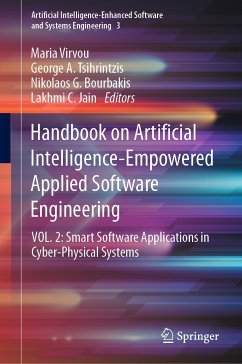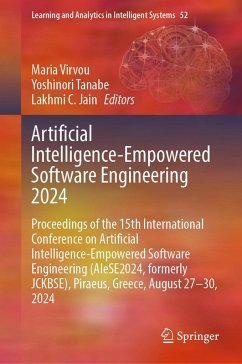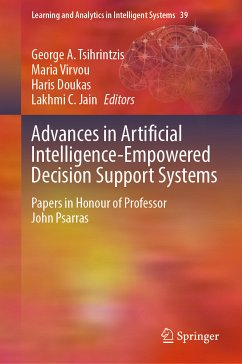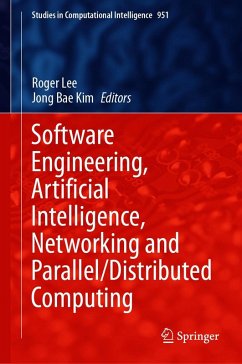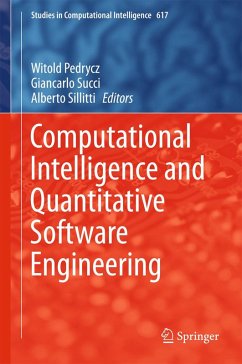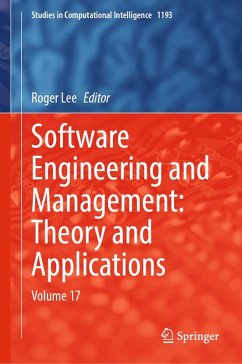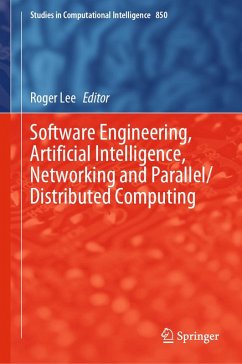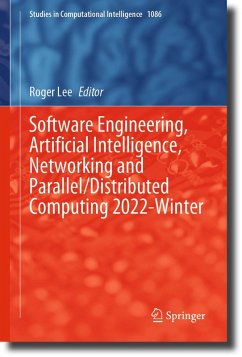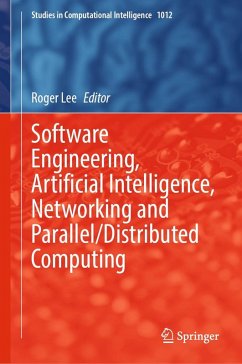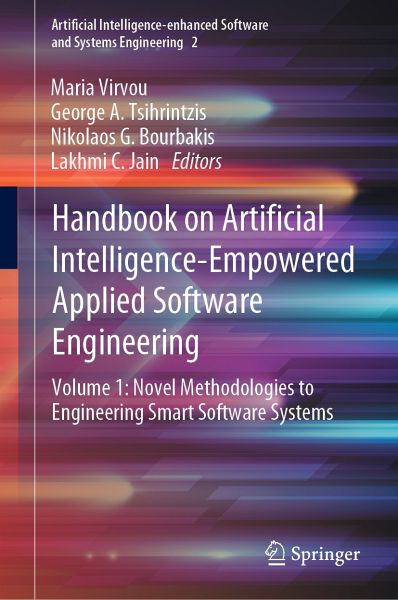
Handbook on Artificial Intelligence-Empowered Applied Software Engineering (eBook, PDF)
VOL.1: Novel Methodologies to Engineering Smart Software Systems
Redaktion: Virvou, Maria; Jain, Lakhmi C.; Bourbakis, Nikolaos G.; Tsihrintzis, George A.

PAYBACK Punkte
56 °P sammeln!
This book provides a structured overview of artificial intelligence-empowered applied software engineering. Evolving technological advancements in big data, smartphone and mobile software applications, the Internet of Things and a vast range of application areas in all sorts of human activities and professions lead current research towards the efficient incorporation of artificial intelligence enhancements into software and the empowerment of software with artificial intelligence. This book at hand, devoted to Novel Methodologies to Engineering Smart Software Systems Novel Methodologies to Eng...
This book provides a structured overview of artificial intelligence-empowered applied software engineering. Evolving technological advancements in big data, smartphone and mobile software applications, the Internet of Things and a vast range of application areas in all sorts of human activities and professions lead current research towards the efficient incorporation of artificial intelligence enhancements into software and the empowerment of software with artificial intelligence.
This book at hand, devoted to Novel Methodologies to Engineering Smart Software Systems Novel Methodologies to Engineering Smart Software Systems, constitutes the first volume of a two-volume Handbook on Artificial Intelligence-empowered Applied Software Engineering. Topics include very significant advances in (i) Artificial Intelligence-Assisted Software Development and (ii) Software Engineering Tools to develop Artificial Intelligence Applications, as well as a detailed Survey of Recent Relevant Literature.
Professors, researchers, scientists, engineers and students in artificial intelligence, software engineering and computer science-related disciplines are expected to benefit from it, along with interested readers from other disciplines.
This book at hand, devoted to Novel Methodologies to Engineering Smart Software Systems Novel Methodologies to Engineering Smart Software Systems, constitutes the first volume of a two-volume Handbook on Artificial Intelligence-empowered Applied Software Engineering. Topics include very significant advances in (i) Artificial Intelligence-Assisted Software Development and (ii) Software Engineering Tools to develop Artificial Intelligence Applications, as well as a detailed Survey of Recent Relevant Literature.
Professors, researchers, scientists, engineers and students in artificial intelligence, software engineering and computer science-related disciplines are expected to benefit from it, along with interested readers from other disciplines.
Dieser Download kann aus rechtlichen Gründen nur mit Rechnungsadresse in A, B, BG, CY, CZ, D, DK, EW, E, FIN, F, GR, HR, H, IRL, I, LT, L, LR, M, NL, PL, P, R, S, SLO, SK ausgeliefert werden.



